World's largest 'off-grid community' wants planet to join in
As we drove through the town of Taos, New Mexico out to the "Earthship" community, thoughts were whizzing through my brain.
"Will we be warm enough? Will there be enough hot water? Will we have electricity? Internet?"
I love camping, and roughing it is second nature, but being cold is the worst! And making TV can be a little difficult without a reliable power source.
The temperature outside was well into the single digits. The landscape; barren but beautiful, topped by snow-capped mountains in the distance.
When I opened the car door and stepped out of the heat bubble we'd created, the chill whacked me in the face.
"Uh oh!" I thought.
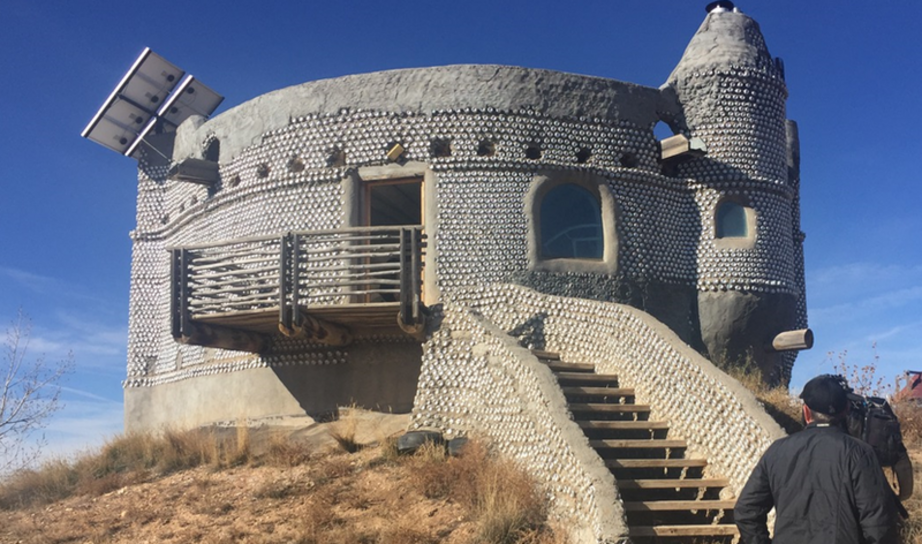
These homes are off-the-grid, "unplugged". There's no outside lines bringing power or water to the homes. (9NEWS)
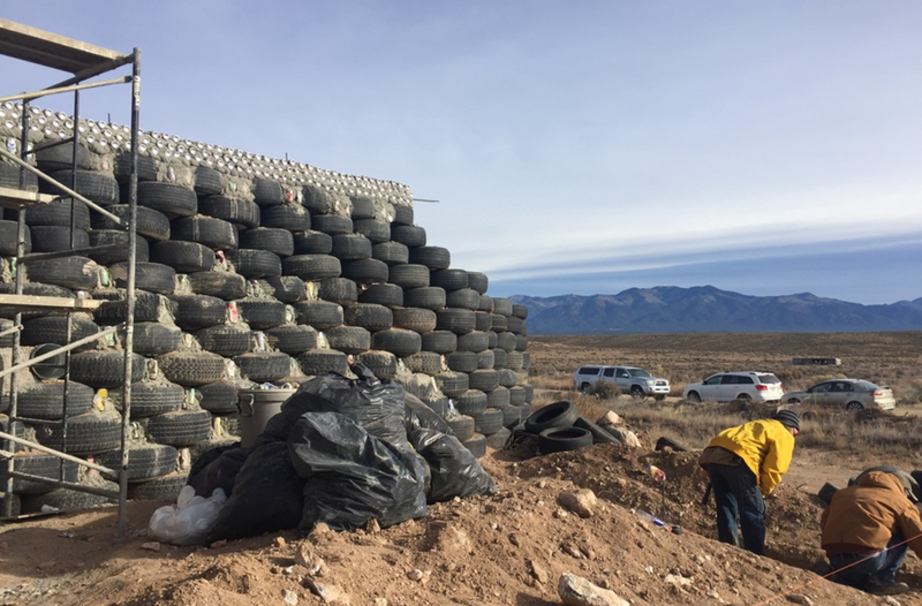
Earthship walls are made from tyres and soft drink cans. (9NEWS)
We were then showed to our digs for the night. An "earthship."
These homes are nestled into the landscape, unassuming and futuristic; a bit like something out of a Mad Max movie, or a Dr Seuss Book.
They're spread out, dotted over hundreds of acres.
Each one of the 70 homes in this community has been built from materials destined for landfill.
The walls and floor are made from discarded rubber tyres, packed with earth. Old soft drink cans and glass bottles are incorporated into the walls and windows.
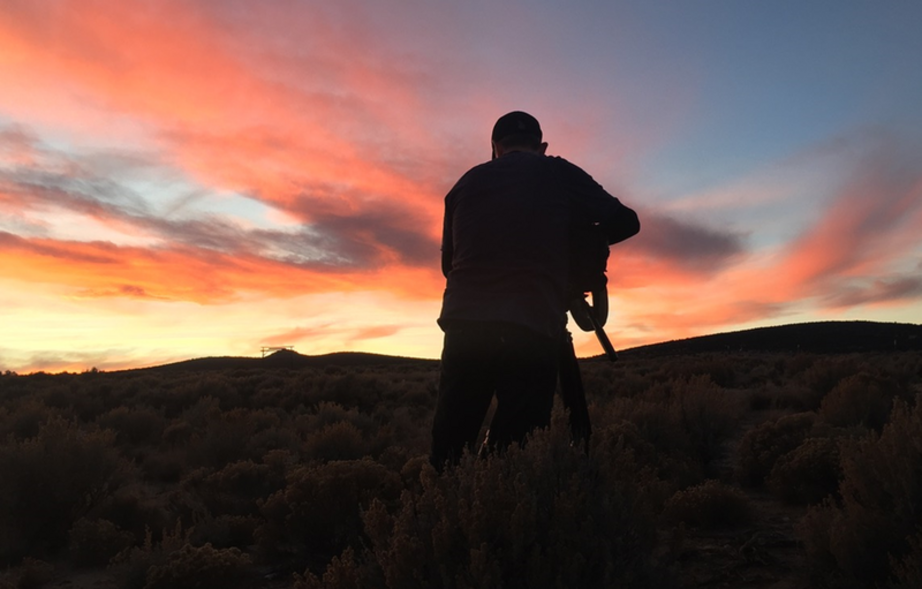
Taos, New Mexico: Home of the Earthship. (9NEWS)
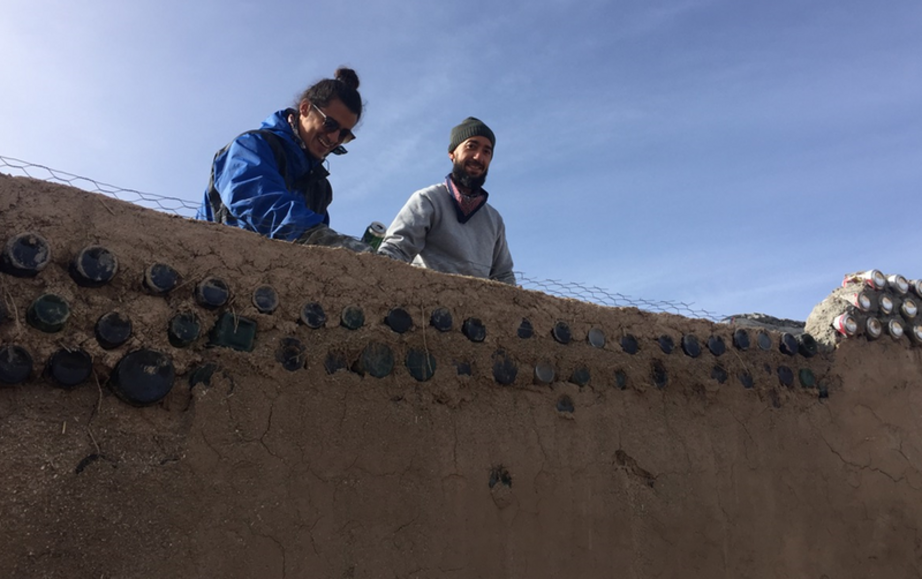
Derrick, left, and Mario, right, from Puerto Rico, learn how to build an Earthship. (9NEWS)
On closer inspection, you would have no idea what lies within the walls. The finishes are rustic yet professional. These are sturdy and beautiful homes.
Opening the front door of our Earthship; we were greeted with an indoor garden, the smell of fresh herbs... And warmth. Yes, warmth.
These homes are off-the-grid, "unplugged". There's no outside lines bringing power or water to the homes. They're warm because the sun made them that way. It's a different kind of warmth. Because, unlike having an open fire or heater, the heat is all through the house. It envelops you, like a cocoon. That night, with no extra covers or electric blanket, it was a toasty 23 degrees, outside temperatures dropped to minus 6 degrees.
Living in an Earthship makes you aware and more appreciative of your environment. You need to learn to work with the elements; when to open the sky lights to let the warmth in...and more importantly, to close it well before the sun goes down. If it's cloudy, you probably shouldn't use the hair dryer, the clothes dryer and have all the lights on at once. If there hasn't been rain for a while, maybe take a shorter shower. Water is used four times throughout the home. Drinking water is filtered from the storage tanks in the berm behind the house; grey water from the shower feeds the garden.
Earthships are the life's work of American architect Michael Reynolds who has been tweaking his design for decades. He now operates the Earthship Academy where like-minded people can go live in, and learn how to build an Earthship.
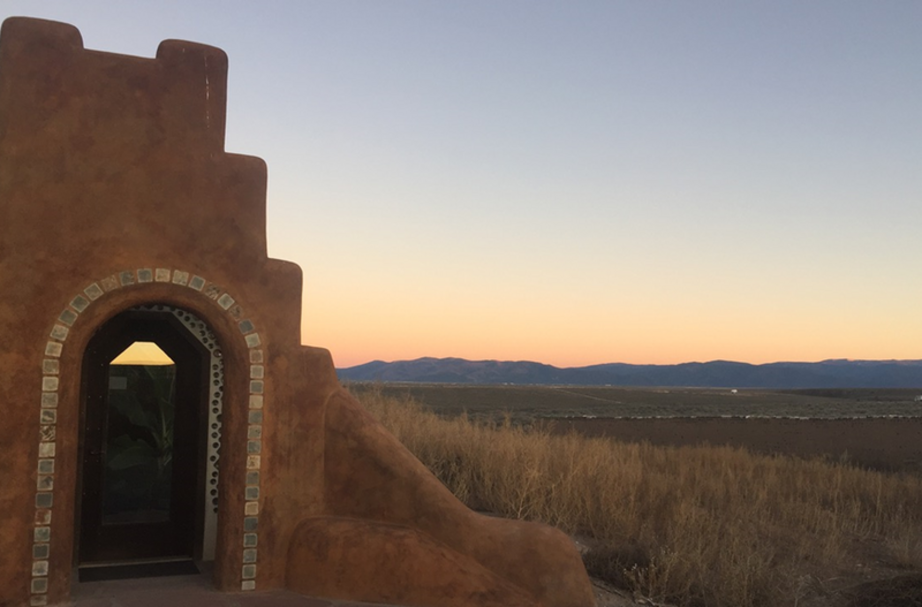
Each one of the 70 homes in this community has been built from materials destined for landfill. (9NEWS)
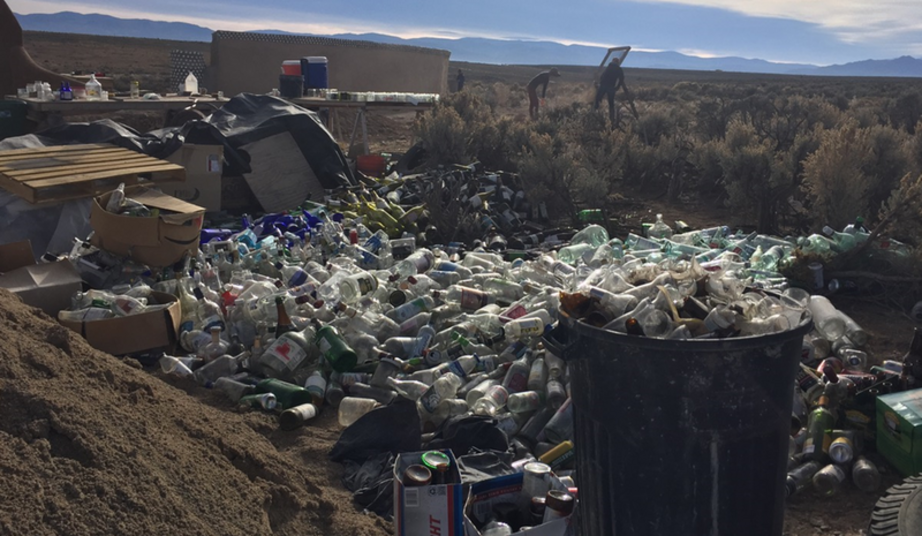
Empty glass bottles - just one of the materials used in construction of earthships. (9NEWS)
Their skills are put to use in places hit by natural disasters. At the academy we meet Carlos, Derrick and Mario from Puerto Rico. They received a scholarship so they can take the Earthship message back to their island, devastated by Hurricane Maria.
We also meet some Australians PJ and Lisa James, who would love to take some of the sustainability practices they've learned back to Australia, and perhaps even build an Earthship of their own in Queensland or Northern NSW.
This way of life isn't for everyone, but with our cities bursting and our landscapes choking on landfill; you have to think.... when does it all stop? When do humans need to make a seismic shift in how we treat our air, water and land?
One thing is for sure Earthships have a bright future, if there's one thing this planet is not short on, it's trash.
Video can be accessed at source link below.
